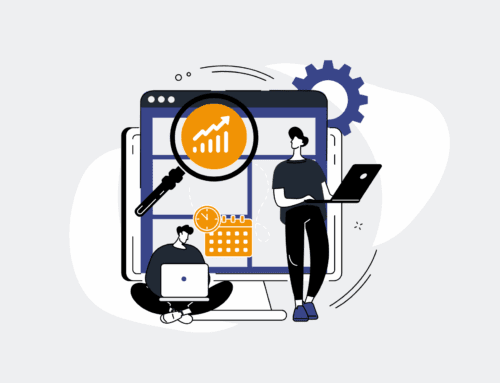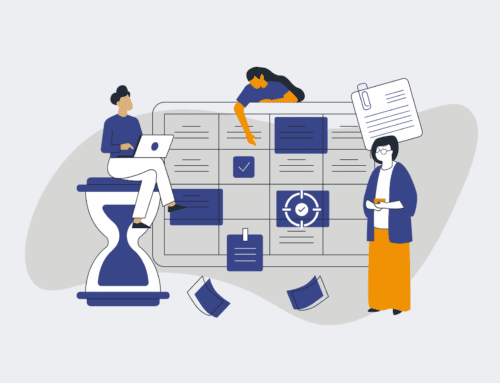The Unseen Hand: How Machine Learning Personalizes New-Hire Journeys for Unprecedented Success
The first impression is often the most lasting, and nowhere is this more critical than in the new-hire journey. For too long, organizations have relied on generic, one-size-fits-all onboarding processes that leave new employees feeling like cogs in a machine rather than valued contributors. This conventional approach, while seemingly efficient, is a silent killer of engagement, productivity, and ultimately, retention. In today’s competitive talent landscape, where the cost of a bad hire or early attrition can soar into the tens of thousands, ignoring the personal element in onboarding is a business risk no forward-thinking leader can afford. At 4Spot Consulting, we understand that true HR excellence comes from systems that are not just automated, but intelligently adaptive. This is precisely where the transformative power of Machine Learning (ML) steps in, orchestrating a personalized new-hire journey that feels bespoke, impactful, and deeply engaging from day one.
Beyond Checklists: Why Generic Onboarding Fails the Modern Workforce
Traditional onboarding often resembles a bureaucratic obstacle course more than an inviting pathway. New hires are bombarded with a deluge of paperwork, mandatory training modules, and company policies, all delivered in a standardized sequence regardless of their role, prior experience, or learning style. This impersonal approach fails to recognize the inherent diversity within any workforce. An experienced senior leader joining from a similar industry has vastly different needs and expectations than a fresh graduate entering their first professional role. A software engineer requires different initial resources and connections than a sales executive. When onboarding lacks relevance, it leads to disengagement, confusion, and a slow ramp-up time to full productivity. It’s a process designed for administrative convenience, not human connection or optimal performance.
This “one-to-many” strategy overlooks critical nuances, leading to several tangible business problems: higher early-stage attrition, delayed time-to-productivity, increased burden on managers to fill knowledge gaps, and ultimately, a negative impact on overall employee satisfaction and brand reputation. Leaders who value efficiency and outcomes recognize that these inefficiencies are bottlenecks preventing their high-value employees from focusing on core strategic tasks.
The Intelligent Navigator: Machine Learning’s Role in Tailoring the Experience
Machine Learning offers a powerful antidote to the generic onboarding malaise. By analyzing vast datasets—everything from a new hire’s resume and interview feedback to their role description, department, and even historical performance data of similar employees—ML algorithms can construct a dynamic, highly individualized onboarding path. This isn’t just about segmenting employees; it’s about creating a truly adaptive journey that evolves with the individual.
Predictive Personalization: Matching Content to Need
At its core, ML in onboarding operates on predictive analytics. It can anticipate what information, training, and connections a new hire will most benefit from at specific stages. For instance, an ML model might recommend specific compliance modules based on geographic location and role, suggest peer mentors with complementary skill sets, or prioritize access to tools and resources critical for their immediate projects. This proactive delivery of relevant content eliminates the overwhelming feeling of information overload and ensures new hires receive exactly what they need, precisely when they need it.
Adaptive Learning Paths: Optimizing Skill Acquisition
Beyond content, ML can tailor the learning journey itself. By tracking a new hire’s progress through modules, assessing their comprehension, and even identifying areas where they might struggle, the system can dynamically adjust the pace and depth of training. If an employee demonstrates proficiency in one area, they can fast-track to the next; if they’re lagging, the system can offer supplementary resources or different instructional formats. This adaptive approach ensures that each employee is challenged appropriately, optimizing skill acquisition and accelerating their journey to becoming a fully productive team member.
Sentiment Analysis and Proactive Support: Catching Early Warning Signs
More sophisticated ML applications can even integrate sentiment analysis, monitoring communications (with appropriate privacy safeguards) for early indicators of disengagement or frustration. While not about surveillance, this capability can identify patterns that suggest a new hire might be struggling, allowing HR or managers to intervene proactively with targeted support. Imagine a system flagging that a new engineer hasn’t accessed a critical development tool or has shown declining engagement in internal communication channels; this insight allows for timely, human-led intervention before minor issues escalate into major retention risks.
The Tangible Returns: Why Smart Onboarding is Smart Business
The integration of Machine Learning into new-hire journeys is more than just a technological upgrade; it’s a strategic investment with significant ROI. For businesses operating with a lean HR team or seeking to scale rapidly, ML-powered onboarding eliminates low-value, repetitive administrative tasks, allowing HR professionals to focus on strategic initiatives and human connection. This mirrors our core offering at 4Spot Consulting: leveraging automation and AI to reduce operational costs, eliminate human error, and increase scalability across your enterprise.
The benefits are clear:
- **Increased Engagement:** New hires feel valued and understood, leading to a stronger sense of belonging.
- **Faster Time-to-Productivity:** Relevant, personalized training accelerates skill acquisition and role integration.
- **Higher Retention Rates:** A positive initial experience significantly reduces early attrition.
- **Reduced Managerial Burden:** Managers spend less time on basic orientation and more on coaching and mentorship.
- **Enhanced Employer Brand:** A sophisticated and supportive onboarding process boosts reputation.
Implementing such a system requires a strategic approach, often beginning with a deep dive into existing processes. Our OpsMap™ diagnostic, for example, helps uncover these inefficiencies and identify precisely where AI and automation, like ML for onboarding, can deliver the most significant impact.
Building the Future of HR: Beyond the Hype
The role of Machine Learning in personalized new-hire journeys is not a distant future concept; it’s a present-day imperative for companies looking to gain a competitive edge in talent management. It’s about moving from reactive problem-solving to proactive, intelligent system design that anticipates needs and optimizes outcomes. By embracing ML, organizations can transform onboarding from a necessary evil into a powerful strategic asset, cultivating a workforce that is not just hired, but truly integrated, engaged, and ready to contribute from day one.
If you would like to read more, we recommend this article: The Intelligent Onboarding Revolution: How AI Drives HR Excellence and New-Hire Success









